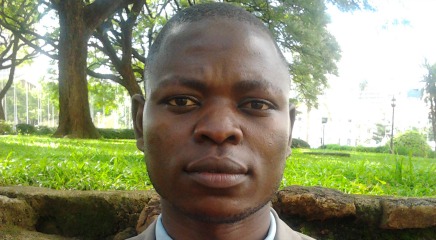Otieno Nickson Otieno
Otieno Nickson Otieno
Nairobi, Kenya
I am the third born among eight children raised in a poor family in a remote village in Kenya. Since my father couldn't pay for our education, my first born sister was drawn from elementary school and forced into marriage at age 14 followed by my elder brother leaving school at grade 5 to search for jobs in the slums of Nairobi city.
To survive in school, I decided to clear our village forests to burn charcoal. I later realised this led to soil erosion and reduced crop harvest worsening my families livelihoods. By God's grace, I managed to join the university to study architecture. But I knew my mission was to reclaim forests and eradicate poverty. So when I heard about the concept of sustainable development in my first semester, I felt this was the means to the change I sought and I immediately committed myself to pursue it.
I champion greening of education and the built environment. I lead the development of Kenya's green building standards and certification systems. As the President and co-founder of the "World Student Community for Sustainable Development" I mobilize, inspire and empower students to transform their learning institutions into green campuses and create sustainable communities around them. Some of the ESD projects I have conceptualized and successfully implemented include river and forest ecosystem monitoring and conservation, modeling a sustainable village, organizing student environmental competitions, sustainability conferences and training, green enterprise development and the formation of the Kenya Green University Network (KGUN).
I envision a future where sustainable development is not just talked about but is experienced by every citizen; where all the now poor communities are enjoying healthy lives supported by productive livelihoods and resilient ecosystems.
This calls for whole-institution, holistic practice of sustainability and co-creation of sustainable 'communities' by engaging all stakeholders, including the youth, as key partners not as beneficiaries and spectators of organizational practices and development programs.
It is therefore important that the youth be motivated and empowered with the knowledge, skills and financial resources to be the leading force for championing climate-compatible, ecosystem resilient and inclusive development.
